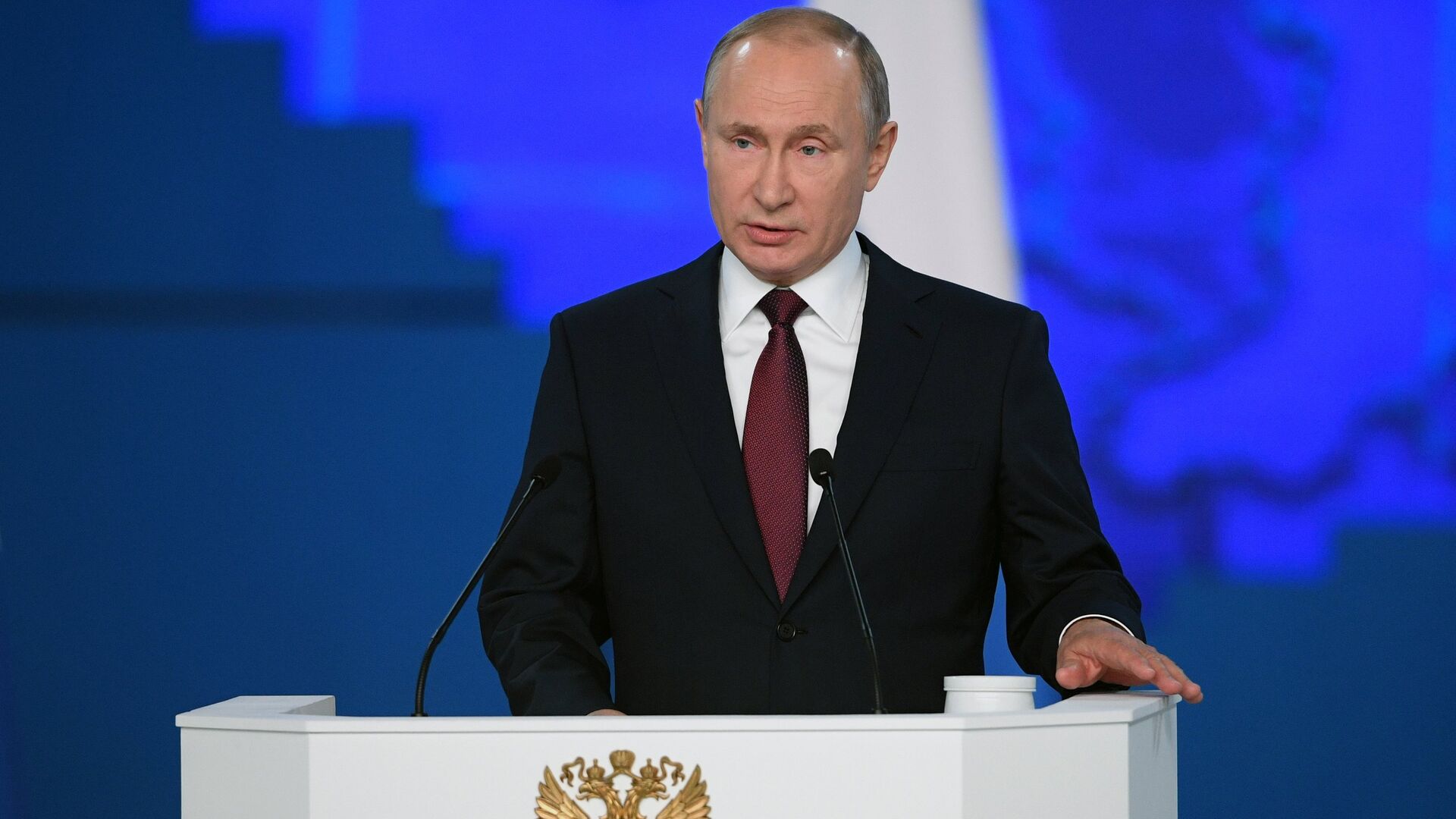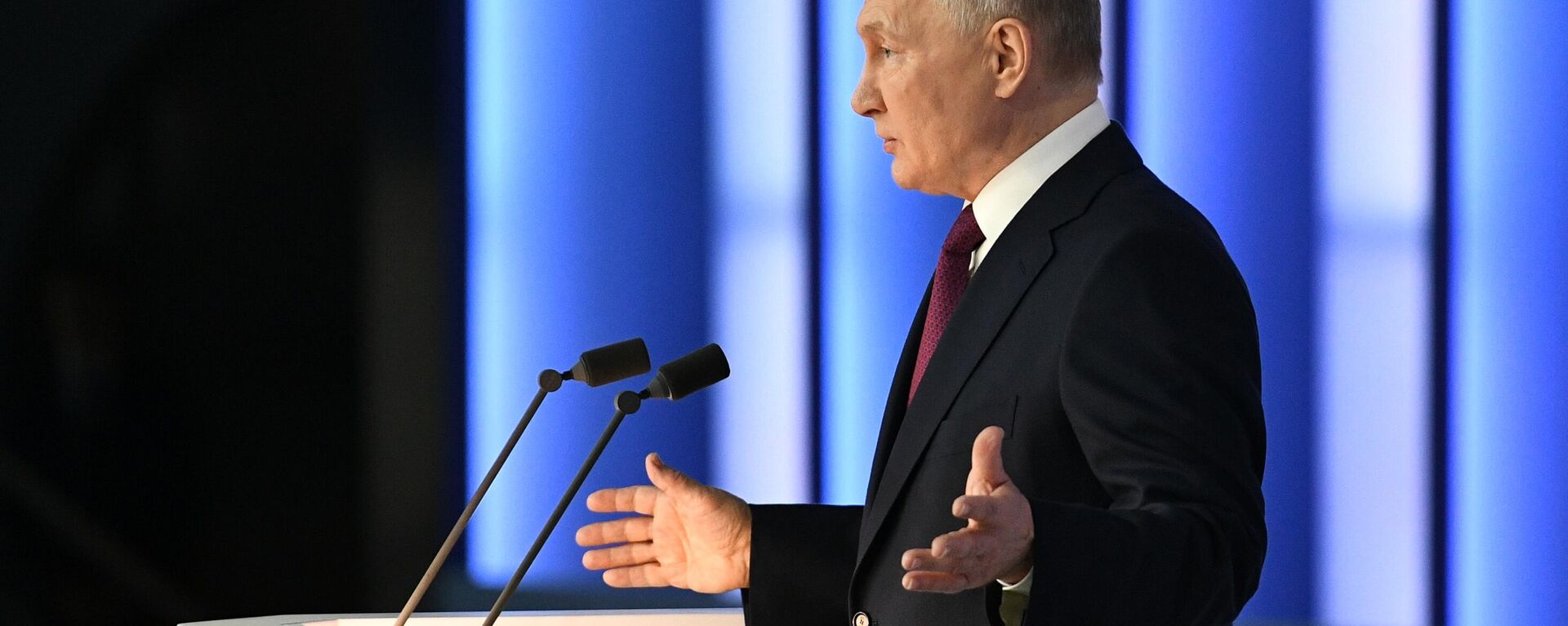Putin’s 2024 State of the Nation Address: What We Can Expect

© Sputnik / Alexey Filippov
/ Subscribe
The ongoing Russian special military operation and Moscow’s economic response to Western sanctions are expected to be among the main topics Putin will single out during the upcoming address.
Russian President Vladimir Putin is due to deliver his State of the Nation address to the country’s parliament on February 29, a speech that will most likely focus on Russia’s state of affairs and the main directions of its domestic and foreign policy.
The Russian head of state recently made it clear that during the Federal Assembly address, which is scheduled to start at 9:00 GMT, he will touch upon “setting goals” for Russia over the next six years.
Additionally, issues related to the ongoing Russian special military operation are expected to be discussed in the course of the upcoming address.
“Such issues actually pertain to Russia’s foreign policy,” believes State Duma (Russian lower house) lawmaker Dmitry Perminov, who told reporters that during the February 29 address, Putin may, among other things, evaluate the implementation of the import substitution program and measures to improve people’s living conditions.
Political scientist Marat Bashirov, for his part, was quoted by the Russian weekly Izvestia as saying, “First and foremost, this [the address] will be a short report by the president on the six years of his current term.”
“At the same time, we expect him to brief us on how we will live in the near future and how the country will develop,” Bashirov suggested.
It’s worth noting that Putin’s previous Federal Assembly addresses contained an array of important statements on Russia’s domestic and foreign policy:
In the 2023 speech, the Russian president announced that the country was suspending its participation in the Strategic Arms Reduction Treaty (New START).
Dwelling on the special military operation, Putin stressed that Russia was not at war with the people of the neighboring country. According to him, the people of Ukraine are "hostages to the regime in Kiev and its Western masters," as their country is being used as a "tool" and "launch pad" for a conflict against Russia.
In a nod to the 2015 Minsk peace accords, which the former German and French leaders have since admitted were not aimed at bringing the crisis in Donbass to an end, but were a "bluff" to enable Kiev to prepare for war against Russia, Putin blasted the West for behaving "as if they are proud of and revel in their treachery."
The 2021 address mainly pertained to Russia’s economy and social policies, as well as measures to cope with the COVID-19 pandemic. Putin praised Russian researchers for developing "three reliable COVID vaccines" and urged the government to enact measures that would help tackle the damage caused by the pandemic to people’s livelihoods.
Touching upon defense-related issues in the 2021 speech, Putin specifically revealed that the first full regiment of Russia’s new Sarmat intercontinental ballistic missile would enter into service by 2022, while the Zircon hypersonic missiles would be put on standby in the near future.
In the 2020 address, the Russian president lauded his country’s steps to “strengthen national security in a timely manner,” stressing that "for the first time in the history of nuclear weapons, we are not chasing anyone; on the contrary, other countries have yet to create weapons that Russia possesses." Putin underscored at the time that Russia’s defense capabilities "are ensured for years to come."
During the 2020 event, he also said that Russia should remain a "strong presidential republic,” but spoke in favor of giving more power to the parliament. Specifically, lawmakers should be given the right to appoint the prime minister, deputies and ministers, he argued. However, such posts are still appointed by the president with the consent of the lower house today.



